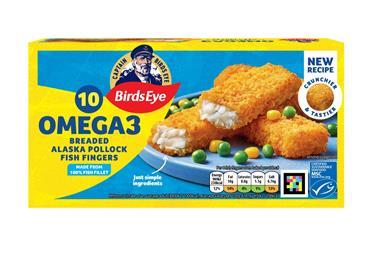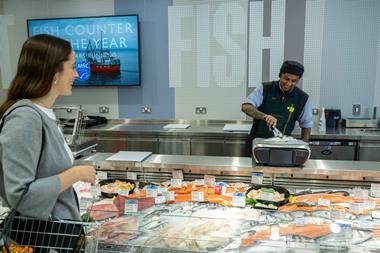Independent Scottish salmon farmers have welcomed the UK and Ireland’s application to the EU for safeguards against surges of cheap imports of farmed Atlantic salmon from Chile, Norway and the Faroes.
But sources among the independent salmon farmers in Scotland said it was critical that the EU moved fast to establish safeguards, as millions of smolts - baby salmon - were set to go to sea in the spring for harvesting two years’ hence.
“Without safeguards, there will be no bank confidence in the long-term stability of the industry, and that will jeopardise farms,” said one source among the independent farmers.
The Scottish salmon industry, responsible for much of the supply of the top selling fish in British supermarkets, has been hit by prices falling below the cost of production for two years.
Said the source: “We are grateful for this but the timing is critical. We need provisional safeguards now. The boats are
about to go to sea. If the EU does not move we will miss the window for the smolts.”
The two governments want the Commission to launch an investigation and give Scotland the chance to restructure and diversify into other species. The most likely form the EU measures would take is a tariff quota imposing punitive duties on imports above a pre-established threshold. But tariffs are contentious as a fair swathe of the Scottish industry is owned by Norwegian firms.
For a safeguard application to be accepted by the EU, it must be supported by at least 25% of community production. The Irish, who face a similar import threat, have decided to support the UK and have ensured this threshold will be met.
The submission is on the agenda of Brussels’ Safeguards Committee this week.
DTI minister for international trade Mike O’Brien said: “Our indigenous producers are facing prices that are putting them out of business.”
Kit Davies
But sources among the independent salmon farmers in Scotland said it was critical that the EU moved fast to establish safeguards, as millions of smolts - baby salmon - were set to go to sea in the spring for harvesting two years’ hence.
“Without safeguards, there will be no bank confidence in the long-term stability of the industry, and that will jeopardise farms,” said one source among the independent farmers.
The Scottish salmon industry, responsible for much of the supply of the top selling fish in British supermarkets, has been hit by prices falling below the cost of production for two years.
Said the source: “We are grateful for this but the timing is critical. We need provisional safeguards now. The boats are
about to go to sea. If the EU does not move we will miss the window for the smolts.”
The two governments want the Commission to launch an investigation and give Scotland the chance to restructure and diversify into other species. The most likely form the EU measures would take is a tariff quota imposing punitive duties on imports above a pre-established threshold. But tariffs are contentious as a fair swathe of the Scottish industry is owned by Norwegian firms.
For a safeguard application to be accepted by the EU, it must be supported by at least 25% of community production. The Irish, who face a similar import threat, have decided to support the UK and have ensured this threshold will be met.
The submission is on the agenda of Brussels’ Safeguards Committee this week.
DTI minister for international trade Mike O’Brien said: “Our indigenous producers are facing prices that are putting them out of business.”
Kit Davies
















No comments yet